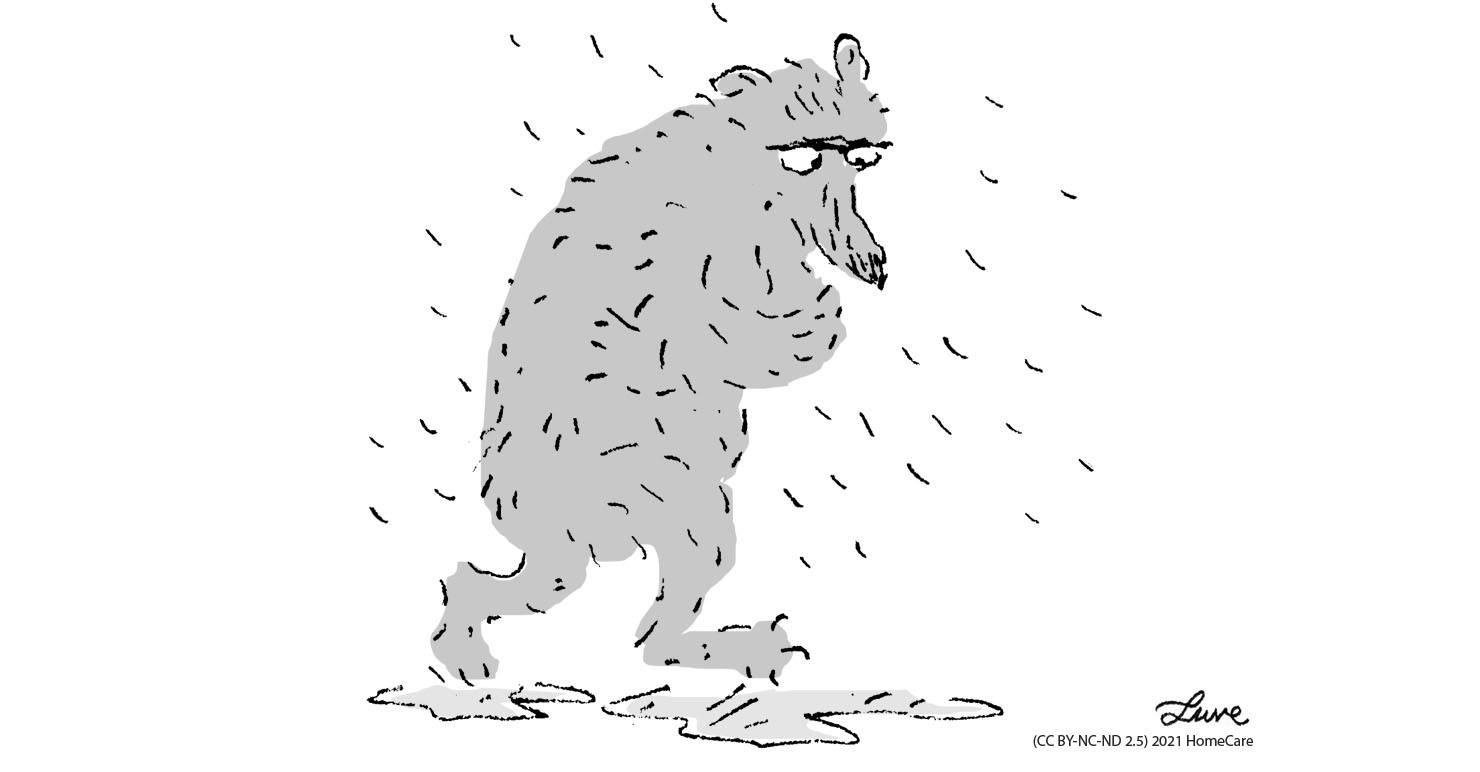
“Out of summer burnout and into the winter depression. . .”
In this section you will be provided with 10 basic tips for preventing the Caregiver Burnout syndrome:
In order to take good care of others, you must first take care of yourself
It is essential that you eat well, that you get enough sleep and that you practice physical exercise that allows you to get rid of accumulated stress. If you have any health problems, take care of yourself too and do not give up, as this will cause you to lose strength and increase your exhaustion.
Ask for help in caring for the elderly or dependent relative
Do not bear the entire burden of care, sometimes the exhaustion is caused by the fact that the care of the dependent is carried out by only one person. It is essential that you ask for help, both from family members and professionals who can lighten the workload. Talk to the rest of the family members so that everyone is involved in the responsibility of caring for the elderly person by establishing different shifts, or divide the tasks.
Promote the autonomy of the cared one
It is necessary to encourage your cared one to do activities on his/her own. This will be beneficial for both the caregiver and the dependent person. You will allow them to improve their autonomy, feeling more confident when doing them, and it will be a great support for the caregiver or family member.
Seek for information on the topic of home care
You should never feel guilty about asking for help, remember the golden rule: if you do not take care of yourself, you will not be able to take care of your loved one.
Set aside a few hours for yourself each day
Cheer up yourself with activities that provide a distraction; sport is one of the best ways to combat stress. Find the time to dedicate a few hours to do these kind of activities that you find rewarding.
Keep your personal and social relationships active
Keep in touch with your friends and colleagues, talking to them allow you to stay connected to the outside world.
Do not self-medicate
Do not take medication to combat the burnout without a prescription from your doctor. Antidepressants can lead to serious intoxication, altering the heart rhythm and even convulsions.
Turn to help service
Turn to associations where you can access support from professionals and other people who are going through the same situation as you (participate in mutual help groups).
Learn to accept the situation
When you are living with the illness of a loved one you run the risk of questioning the reason for your relative’s. These thoughts only lead to psychological exhaustion, frustration, and depression. Learn to accept the illness and focus on small tasks and goals aimed at achieving greater well-being for the patient and yourself every day. Appreciate the small day-to-day successes and be proud of your work in caring for the elderly person.
Maintain realistic expectations about your cared one’s illness
It is quite possible that, despite your best, your loved one’s illness will gradually progress. This can lead to feelings of helplessness and frustration, and often the caregiver also experiences a sense of emptiness and guilt when the loved one dies. Do not fall into this and be realistic.
Back Next
![]()
Burnout, Depression and Social Exclusion of the Caregiver:35% complete
